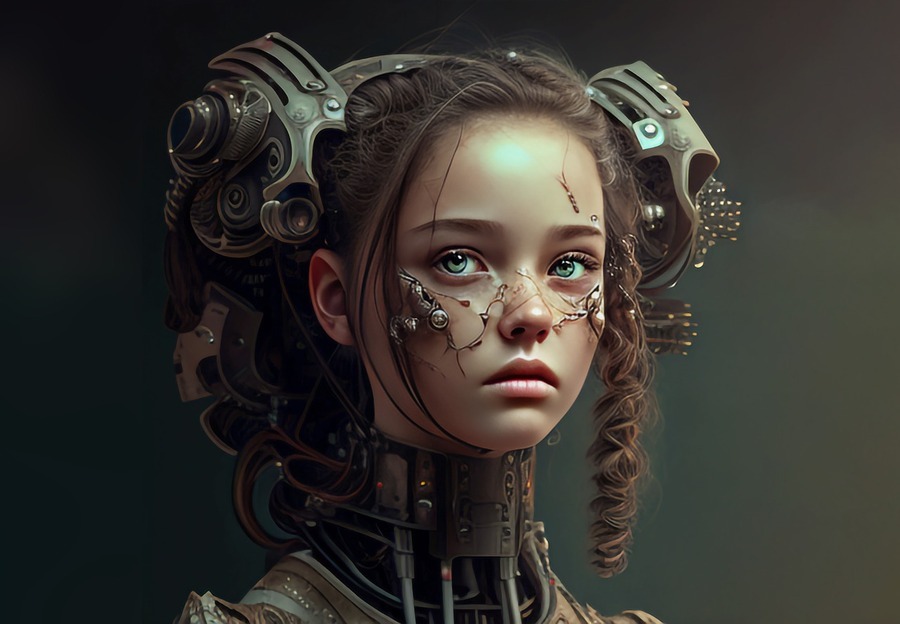
Rethinking Education in the AI Age
15 Apr, 2023
As the death of education looms, it’s time for rethinking education to adapt to the AI-driven world. Instead of perceiving AI as a threat, we can consider it a catalyst for change, prompting us to develop innovative educational models that focus on nurturing the unique capabilities of humans while leveraging AI technologies.
Emphasizing Creativity and Emotional Intelligence
In the process of rethinking education, we must emphasize skills that differentiate humans from machines. By focusing on nurturing creativity, emotional intelligence, problem-solving, and interpersonal skills, education can evolve to equip individuals with the abilities necessary to thrive in the AI-driven world. This new approach to education could involve project-based learning, collaboration, and experiential learning opportunities that foster innovation and critical thinking.
Lifelong Learning and Adaptability
Rethinking education also involves embracing the concept of lifelong learning. As AI continues to advance and disrupt various industries, the ability to learn and adapt will be paramount. Education systems must encourage and facilitate continuous learning, enabling individuals to acquire new skills and knowledge throughout their lives.
Personalized Learning
Rethinking education in the AI age also involves personalized learning. AI technologies can help create customised learning experiences that cater to each student’s unique needs and learning styles. AI can provide tailored recommendations for learning materials, activities, and assessments by analysing student performance and behaviour data. This approach can lead to more effective learning outcomes and better student engagement.
Ethical Considerations
Incorporating AI into education necessitates a critical examination of its ethical implications. Institutions must ensure that AI technologies are used in a way that respects privacy, autonomy, and human dignity. Additionally, educators must teach students about the ethical considerations of AI, including bias, transparency, and accountability.
Upskilling and Reskilling
Rethinking education in the AI age also involves upskilling and reskilling the workforce. As AI technologies continue to disrupt various industries, individuals must acquire new skills and knowledge to remain relevant in the job market. Education systems must provide opportunities for upskilling and reskilling, enabling individuals to transition to new careers and industries.
Collaboration and Interdisciplinary Learning
In the AI age, collaboration and interdisciplinary learning are becoming increasingly important. AI technologies are blurring the lines between different fields, and individuals must be able to work across disciplines to solve complex problems. Education systems must provide collaboration and interdisciplinary learning opportunities, enabling individuals to develop the skills necessary for success in the AI-driven world.
Adaptive Assessments
Rethinking education in the AI age also involves adaptive assessments. AI technologies can help create assessments that adapt to each student’s individual needs and abilities. By analyzing data on student performance, AI can provide tailored assessments that accurately measure student knowledge and skills. This approach can lead to more accurate evaluations and better learning outcomes.
Combining AI and Human Expertise
As part of rethinking education, we should consider the potential synergies between AI and humans. By leveraging the strengths of AI, such as data analysis and pattern recognition, alongside human skills like creativity and empathy, we can create more effective and efficient solutions. This collaborative approach can lead to innovation and growth across various fields, including medicine, law, and education.
Preparing for an AI-Integrated Future
In the process of rethinking education, institutions must start preparing for a future where AI is seamlessly integrated into various aspects of life. This preparation could involve incorporating AI tools in the learning process, training educators to use AI technologies, and updating curriculums to reflect the changing landscape of knowledge and skills required in the AI-driven world.
Conclusion
The rise of AI may signal education’s death in its traditional form, but it also presents an opportunity for rethinking education and reshaping its purpose. By embracing AI technologies, emphasizing creativity and emotional intelligence, fostering lifelong learning, and nurturing collaboration between AI and humans, we can develop a new educational model that prepares individuals for the challenges and opportunities of an AI-integrated future.
We must adapt proactively to these changes, ensuring that education remains relevant and valuable. Personalized learning, upskilling and reskilling, interdisciplinary learning, and adaptive assessments are critical components of the new educational model. By considering ethical implications and leveraging the unique capabilities of humans while leveraging AI technologies, education systems can evolve to equip individuals with the skills necessary to thrive in the AI-driven world.
FAQs
| Question | Answer |
|---|---|
| What is personalized learning? | Personalized learning is an approach to education that uses AI technologies to create tailored learning experiences that cater to each student’s unique needs and learning styles. |
| What are the ethical considerations of using AI in education? | The ethical considerations of using AI in education include privacy, autonomy, and human dignity. Educators must also teach students about the ethical implications of AI, including bias, transparency, and accountability. |
| What is upskilling and reskilling? | Upskilling and reskilling refer to acquiring new skills and knowledge to remain relevant in the job market. In the AI age, upskilling and reskilling are becoming increasingly important as AI technologies continue to disrupt various industries. |
| What is interdisciplinary learning? | Interdisciplinary learning is working across different fields to solve complex problems. In the AI age, multidisciplinary learning is becoming increasingly important as AI technologies blur the lines between different areas. |
| What are adaptive assessments? | Adaptive assessments are assessments that adapt to each student’s individual needs and abilities. AI technologies can help create adaptive assessments that accurately measure student knowledge and skills. |
Additional FAQ: | |
| What is the role of emotional intelligence in the AI age? | Emotional intelligence is becoming increasingly important in the AI age as it is a skill that differentiates humans from machines. Education systems must emphasize emotional intelligence to equip individuals with the abilities necessary to thrive in the AI-driven world. |
| What is the importance of collaboration in the AI age? | Collaboration is becoming increasingly important in the AI age as AI technologies are blurring the lines between different fields. Individuals must be able to work across disciplines to solve complex problems, and education systems must provide opportunities for collaboration and interdisciplinary learning. |
| What is the concept of lifelong learning? | Lifelong learning is the concept of continuous learning throughout one’s life. In the AI age, the ability to learn and adapt will be paramount, and education systems must encourage and facilitate continuous learning. |
A World of Ideas: Articles That Will Expand Your Horizons
Is Disinflation Hitting Wall Street? Could be bad news for the fat cats
Meet the dollar vigilantes
How To Be Happy: Epicurus Had The Answer 1700 Years Ago



